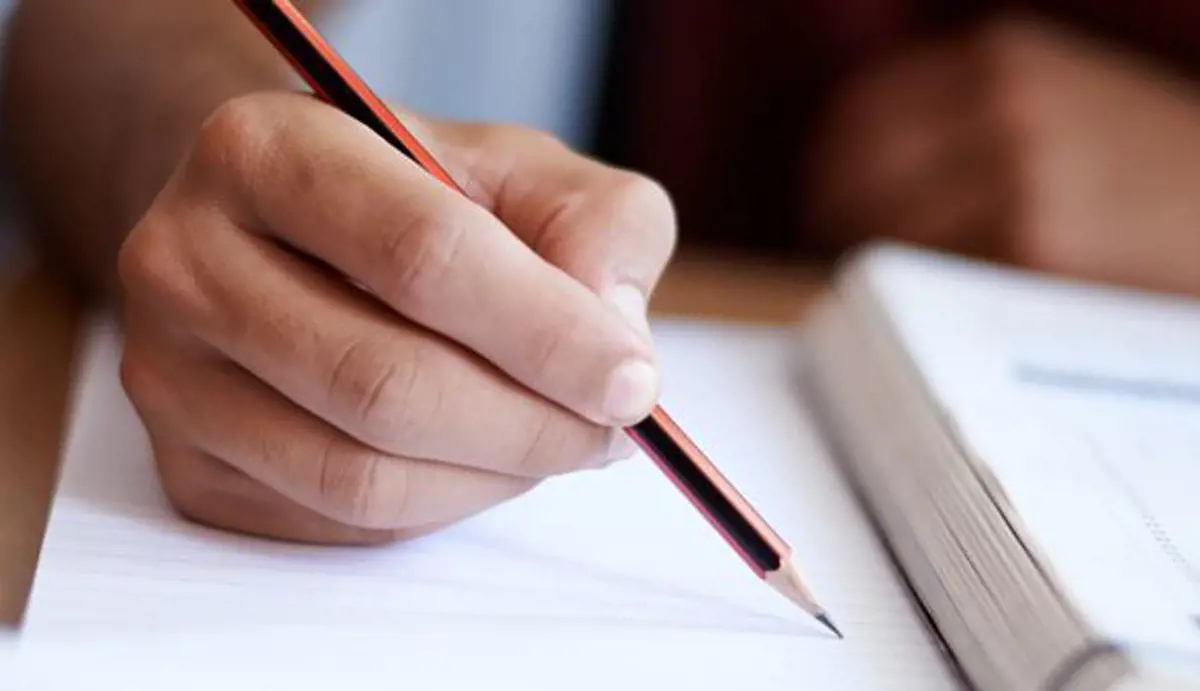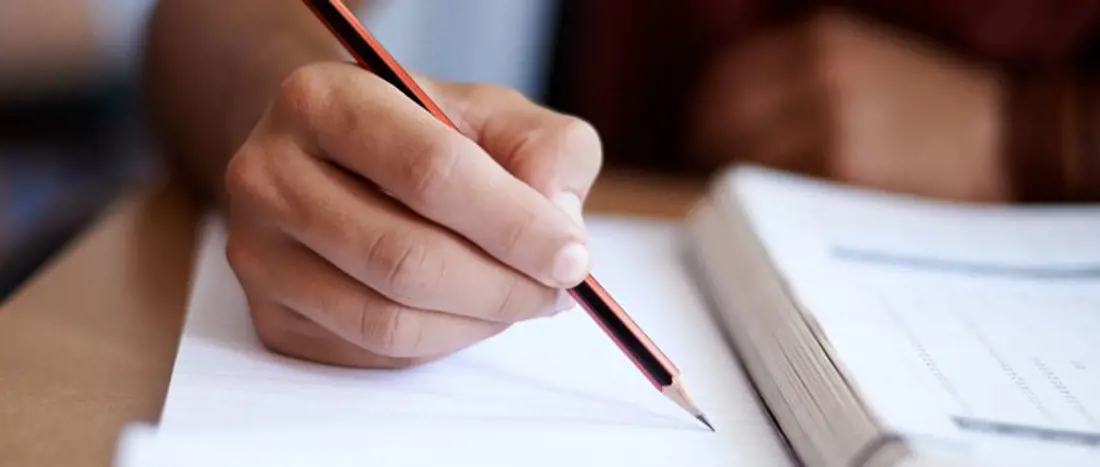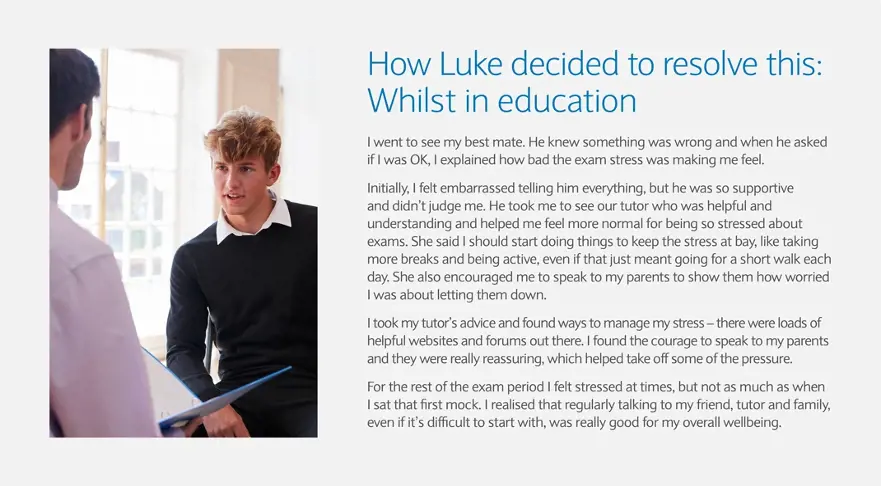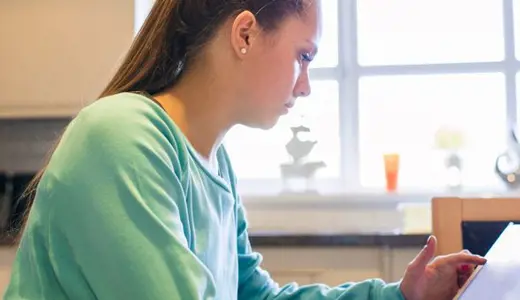Wellbeing: Dealing with pressure




At certain stages of our lives we are likely to experience stress, but having methods to deal with these pressures can help support our wellbeing. This home learning activity explores the pressures faced by a young person called Luke as he prepares for his GCSEs, and ways he can overcome them.
You can either complete this with your child (you don’t need to be an expert, just follow the pointers below), or they can complete it independently using the worksheet.
What is wellbeing?
Ask your child what they think wellbeing is. You can use these points to help the conversation:
- Wellbeing can be how someone thinks or feels about themself or their life
- It can involve feelings of mental and physical health, and include social and emotional factors
- Things that make people feel good - this might include friends/family, exercise, rest and sleep, food, pets, and hobbies
- A positive sense of wellbeing can be impacted by exercise/activity, healthy eating, sleep and rest
- You could discuss the effects of relationships, educational, financial, or work-related stress and how life changes can affect wellbeing
- Wellbeing can also be affected by how people cope with situations such as change or pressure
Luke’s story
Hear from Kamal in the video below who describes the pressures that Luke is facing. Ask your child to think about the signs that show Luke might be feeling stressed, and what he could do to help himself. They can use the worksheet to write down their ideas.
What are the coping strategies?
Ask your child to write down as many coping strategies that someone like Luke could use to maintain his wellbeing when under pressure. Here are some ideas to get them started:
- Speaking to other people who can offer support and guidance
- Using websites and forums with helpful advice
- Taking regular breaks and short walks
- Making time for an activity he enjoys
- Planning his day, allowing time for revision as well as breaks and down time
- Finding ways to turn negative thoughts and behaviours into positive ones
- Writing successes and positive moments down in a journal
Get them to create an action plan for Luke, or for themselves if they are also experiencing exam pressure, which might include:
- Organisation of coping strategies:
- When will they happen? Perhaps every day, all the time, for a short time each day, or once only
- Where will they happen?
- Does he need anything else to make them happen?
- Who else could be involved or help?
- Alternative ideas (a plan B) in case this strategy doesn’t work
- Measurable goals so Luke will know that the strategy is working?
Ask your child to read the second part of Luke’s story, which demonstrates how he dealt with his challenges. Talk through anything that your child didn’t consider and why these ideas might be useful too



